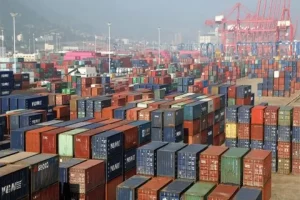When Imran Khan took over as Prime Minister, he promised to build a '<a href="https://indianarrative.com/opinion/arrest-free-repeat-the-game-pakistan-plays-before-fatf-review-11118.html" target="_blank" rel="noopener noreferrer"><strong>naya Pakistan</strong></a>' and vowed to root out corruption. Much before he completed his first year in the office, Pakistan slipped three places—from 117 to 120 amongst 180 countries—on the Corruption Perception Index (CPI)-2019 released by Berlin-based Transparency International.
Still early days so the <em>kaptaan</em> (captain) was given what in cricketing parlance is known as 'the benefit of the doubt' by the critics.
On the occasion of the second anniversary last month, the Pakistan Tehreek-e-Insaf (PTI) government engaged in some more chest-thumping. Moody’s, Fitch and Bloomberg ratings were mentioned in the press conferences even as the country's economy continued to suffer massively and Khan had to link his country's economic future to China.
The rhetoric had already failed and the bubble also finally burst Thursday with retired Lt Gen Asim Saleem Bajwa, a Special Assistant to the Prime Minister (SAPM) of Pakistan, submitting his resignation after allegations of massive corruption leveled against him.
<p dir="ltr">However, after some intense drama entire Friday, PTI senator Faisal Javed Khan tweeted that Khan has refused to accept Bajwa's resignation.</p>
<p dir="ltr">"Prime Minister Imran Khan has decided not to accept resignation of @AsimSBajwa from SAPM (Info & Broadcasting) post and has given instructions to continue working," he said.</p>
It was said that Bajwa, also the chairperson of the China-Pakistan Economic Corridor (CPEC) Authority, was being targeted by opposition/foreign forces.
Clearly, the anti-corruption narrative that Khan had built and pushed for the last so many years, has fallen flat.
In an investigative report done by journalist Ahmad Noorani, it has been alleged that Bajwa—a former chief of the Pakistan Army's media wing, the Inter-Services Public Relations (ISPR)—and his family members have innumerable offshore properties and businesses worth millions of dollars.
The <a href="https://factfocus.com/politics/1756/">report</a> titled 'Bajwa family business empire grew in four countries in sync with Asim Bajwa's rise in military' published on Noorani's website on August 27 details how the growth of the Bajwa family's business empire in the United States, and later in Pakistan, directly matches his rise in power in Pakistani military and as the chairman of the country's massive China-financed infrastructure project.
"Nadeem Bajwa (Asim Bajwa's younger brother), 53, who started as a delivery driver for the pizza restaurant franchise, his brothers and Asim Bajwa's wife and sons now own a business empire which set up 99 companies in four countries, including a pizza franchise with 133 restaurants worth an estimated $39.9 million. Out of total 99 companies, 66 are main companies, 33 companies are branch companies of some of the main companies while five companies are dead now. The Bajwa family's companies spent an estimated $52.2 million to develop their businesses and $14.5 million to purchase properties in the United States, while Asim Bajwa and his department were encouraging Pakistanis to invest within their relatively undeveloped country," the report alleged.
It further mentioned how Asim Bajwa's wife Farrukh Zeba was a shareholder in all the foreign businesses from the very beginning and is at present associated with, or is a shareholder in, 85 companies including 82 foreign companies (71 in United States, seven in UAE and four in Canada).
<img class="wp-image-12067 size-full" src="https://indianarrative.com/wp-content/uploads/2020/09/5b772636d3873348ab5062425aecfb7f.jpg" alt="" width="697" height="871" /> Pakistan Prime Minister Imran Khan (IANS)In a tweet Thursday, with a seven-page response attached to it, Bajwa rebutted the allegations leveled against him and his family saying that he has and will always serve Pakistan with pride and dignity.
Noorani replied with a tweet as well, saying that he stood by his story in which every point made is right.
In a country where corruption is widespread, this case may just prove to be the proverbial tip of the iceberg. Bajwa playing a big role in the $62 billion CPEC may just be giving sleepless nights to the anti-corruption watchdogs.
As India Narrative had <a href="https://indianarrative.com/world/undue-benefits-to-chinese-firms-sleaze-in-cpec-rile-pakistanis-3544.html">revealed</a> earlier, a 278-page report by the nine-member 'Committee for Power Sector Audit, Circular Debt Reservation, and Future Roadmap' had revealed serious violations and discrepancies in the standard operating procedures (SOPs) guiding the independent power producers (IPPs) under the much-hyped CPEC.
According to the report, many Chinese firms have made unrealistic and out-of-turn profits through over-invoicing and higher tariff charges compared to the prevailing market rates. Not just that, names of Razak Dawood and Nadeem Babar, both close associates of Pakistan Prime Minister Imran Khan, have also come up in the report for having gained from the project.
That Bajwa still continues to remain in office and also lead the CPEC exposes Imran Khan's double standards and the falsehood of his much-publicized campaign to tackle corruption in the deep state.
"If someone asks me what I did for the country during my tenure, I will say that I have set its direction right to realize the dream of its forefathers," Khan said in a TV interview to 'Dunya News' last month.
The forefathers are certainly turning in their graves..




















